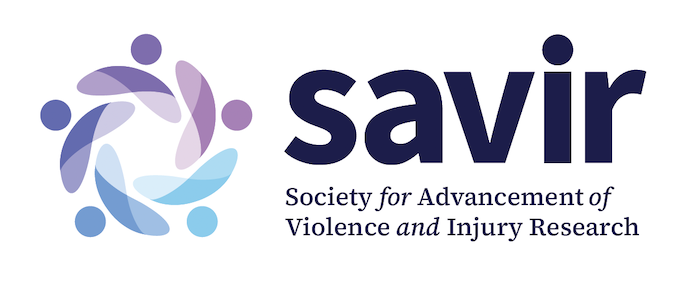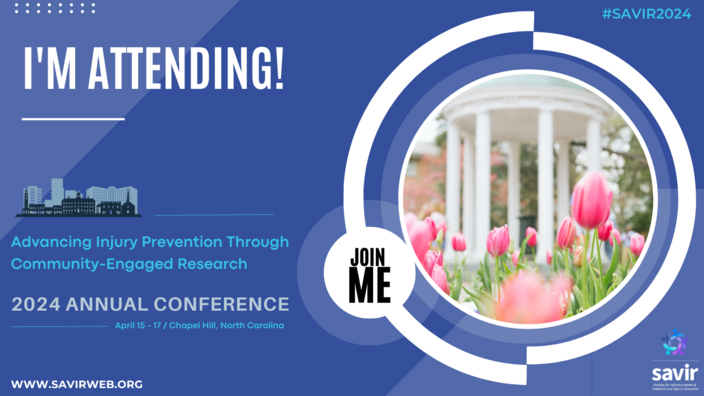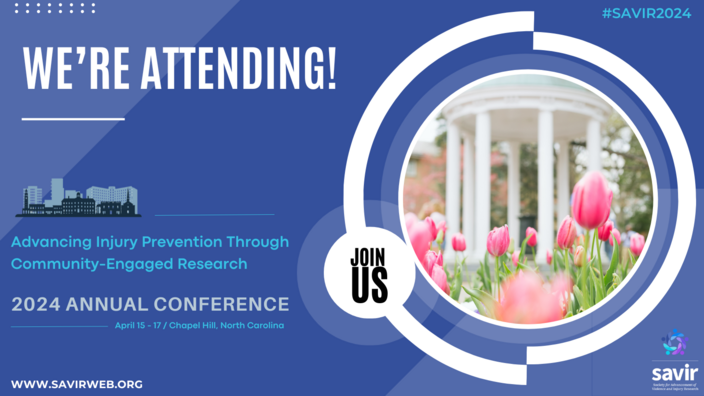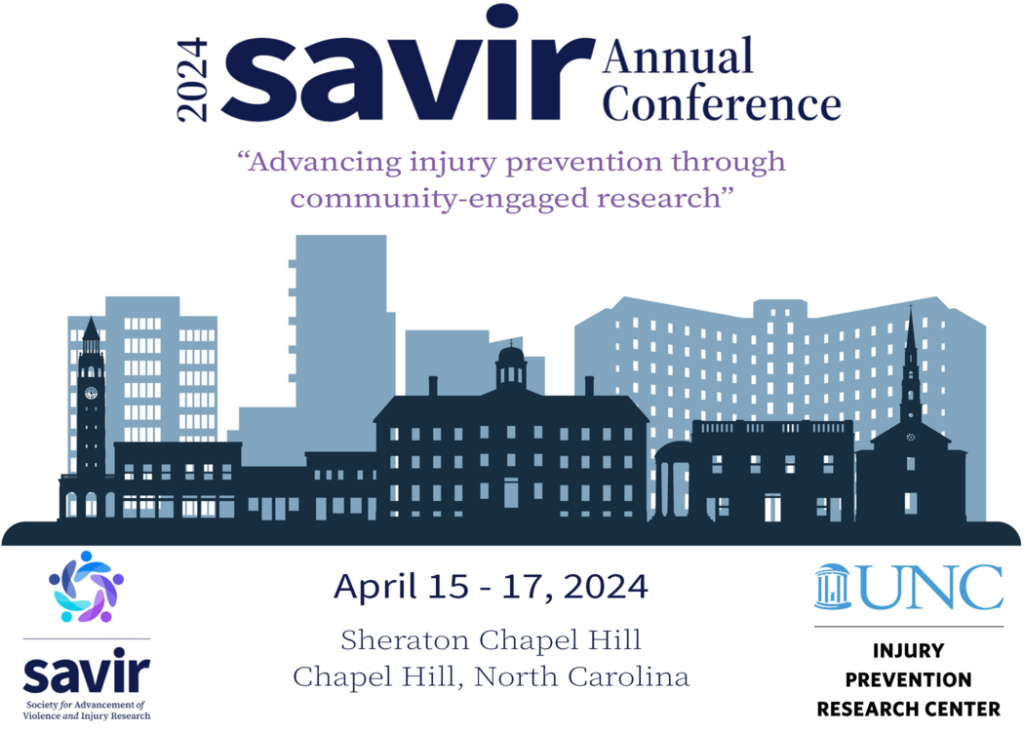
SAVIR 2024 Conference
Advancing injury prevention through community-engaged research
Hosted by the Injury Prevention Research Center at the University of North Carolina at Chapel Hill
The theme for the 2024 SAVIR Annual Conference was “Advancing injury prevention through community-engaged research”. The conference highlighted ways in which researchers are engaging communities in a meaningful way to advance injury and violence prevention.
View the complete conference program
During the conference, we explored methods, strategies, and the role of working with community partners, community leaders and others to conduct research, outreach and training activities.
Location: Sheraton Chapel Hill Hotel. One Europa Dr, Chapel Hill, NC 27517
SAVIR welcomed the following sponsors and exhibitors to the 2024 Annual Conference:
- Safe Kids Worldwide
- RTI International
- University of North Carolina Gillings School of Global Public Health
- University of North Carolina Vice Chancellor for Research
- Everytown for Gun Safety
- Safe States Alliance
- University of Michigan Injury Center
- University of Colorado Anschutz Medical Campus Injury and Violence Prevention Center
- University of Iowa Injury Prevention Research Center
- Johns Hopkins Center for Injury Research and Policy
- University of Michigan Institute for Firearm Injury Prevention
- Bloomberg American Health Initiative
Thank you to our 2024 Sponsors!
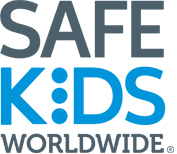


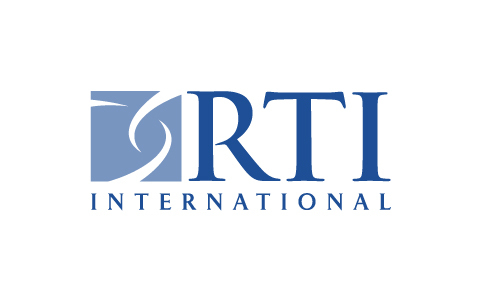
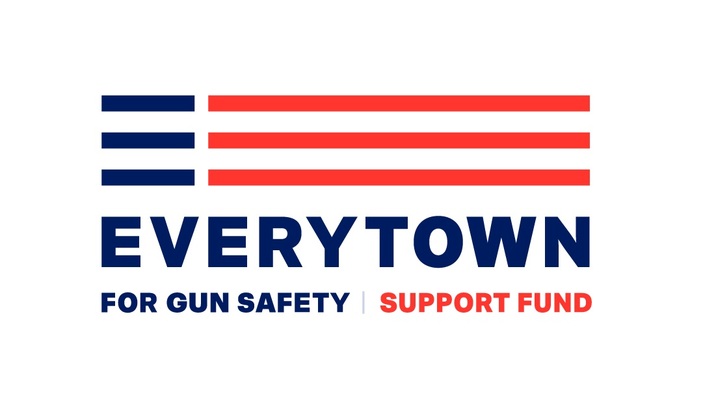
Conference Information
Below you will find information on the three short courses being offered at the 2024 Conference.
Using Systems Tools to Support Collaborative Research Agenda Setting and On-the-Ground Planning and Implementation
Presenters: Rebecca Naumann BNaumann@cdc.gov – CDC, National Center for Injury Prevention and Control, Atlanta, USA; Kristen Hassmiller Lich klich@unc.edu – University of North Carolina at Chapel HIll, Chapel Hill, USA; Elyse Keefe ekeefe@email.unc.edu – University of North Carolina at Chapel Hill, Chapel Hill, USA
Description/abstract:
With an increasing recognition that many persistent injury and violence problems are driven by intertwined and deep-rooted social determinants of health and underlying shared risk and protective factors, injury prevention researchers and practitioners face challenges in studying and intervening on this complexity. Challenges exist in both 1) setting research agendas and developing research questions mindful of this complexity and relatedly 2) translating research to practice effectively and in a way that recognizes complex structures and mechanisms at play.
Given this year’s annual meeting theme focused on community-engaged research, we invite you to join us to learn about some tangible and easy-to-use tools from systems thinking and systems science that can help with:
– Generating hypotheses on underlying mechanisms driving injury trends– to help articulate research questions and research agendas in a collaborative, complex-aware manner (using a tool called a causal loop diagram)
– Illuminating specific, deep-rooted factors within structured domains (and potential connections between these domains) that contribute to injury events—to support both research question development and potential intervention planning across partners (using a tool called an AcciMap)
– Highlighting key facets of a system or environment that should be examined and addressed when translating research into practice—to support effective intervention planning, implementation, and evaluation work across partners (using a tool called the 5 Rs)
This short course is intended to provide time to step back and invest in strategic thinking across the research to practice continuum and to provide you with tools (including handouts) that you can take home to support both research development processes and research to practice translation work. Examples will be provided across different injury topics (e.g., ACEs, suicide prevention, transportation safety). Course content will cover three different systems tools and provide plenty of time for engaging and fun hands-on practice.
Engaging community in school-based anonymous reporting systems
Presenter: Alexandria French alex.french@sandyhookpromise.org – Sandy Hook Promise, Newtown, USA
Description/abstract:
School methods for surveillance are sharply increasing in an effort to reduce the burden of violence for students. Anonymous report systems (ARS) are one form of surveillance which are used in over 50% of K-12 schools which are gaining more attention over the past few years. These systems leverage a see-something-say-something model, whereby students submit information anonymously on potentially threatening or concerning behaviors. The data generated from these tips is robust, and can include student names, descriptions, as well as details on behaviors that schools would generally not be aware of – yet, how this information is used, managed and stored is not well understood.
In this short course, the presenters will be discussing a commonly used, nationally available ARS that is currently operating in 23 states: Say Something Anonymous Reporting System, provided by the Sandy Hook Promise Foundation. The course will be drawing from several fields including data science, ethics, educational policy, and public health to discuss 1.) types of information that are created by these systems; 2.) need for higher level forms of computation and machine learning which can increase the risk of data-based unintentional harms; 3.) ethical considerations of balancing unintentional harms from surveillance-type data (including ownership, management, privacy, and fairness) with the unique benefits of ARS and how they differ from other forms of Ai-assisted surveillance (e.g., video surveillance), 4.) and how we might test for different implications and outcomes of these systems by social identity (e.g., gender, race) and community-level disparities.
Additionally, the course will feature discussion with participants around community engagement in anonymous reporting. Specifically, the conversation will center around school districts’ and superintendents’ use of ARS data (including data storage and sharing best practices). Further, participants will discuss types of training that would be complementary to the technical training on ARS use (for example, training on restorative justice and trauma-informed care) and the best way to advocate for those trainings as well as ideas for support staffing that could help a district successfully manage their ARS. Finally, the discussion will turn to including the broader community in the ARS process. Though schools are the primary user of the system, parents are frequently notified as an outcome of tip submissions. The presenters and participants will talk through tangible ways that school districts can leverage the important role communities play in youth violence prevention (including managing impressions and expectations of the system).
Beyond Numbers: Navigating Data Equity in Suicide Prevention
Presenter: Sommer Albert salbert@edc.org – Suicide Prevention Resource Center, Education Development Center, Waltham, MA, USA
Description/abstract:
The aim of this workshop is to provide space for suicide prevention researchers, practitioners, and leaders to understand the importance of evaluating their current use of equity in their data activities and how to strengthen data use in their suicide prevention efforts. Since 2021, the Suicide Prevention Resource Center (SPRC) has conducted an annual State and Territorial Suicide Prevention Needs Assessment (SNA) to assess the suicide prevention capabilities of the 54 U.S. states, territories, and the District of Columbia. The 2023 SNA findings showed that only 22% of states (11 out of 49) reported that their state ensures that populations that are at high risk and underserved are adequately represented in their suicide-related data. One approach to increase data equity is to strengthen genuine community engagement within data efforts. Strengthening community engagement allows states to receive feedback on feasible strategies for addressing unique data challenges across populations and to develop local partnerships which can increase community representation in data as well as the ultimate use of data by communities.
This workshop will offer 1) a brief overview of data infrastructure findings from the SNA, 2) an overview of data equity in suicide prevention, 3) tools and questions to consider for evaluating and monitoring data equity, and 4) a group discussion on progress being made to strengthen community engagement and disproportionately underrepresented perspectives into data activities. 5) This workshop will provide an overview of the free and accessible resources that SPRC offers to support state, territories, and communities in their equitable data practices and suicide prevention efforts, including a new interactive self-guided resource, Beyond Numbers: Navigating Data for Suicide Prevention. 6) Attendees will also break into small groups to begin filling out a Beyond Numbers worksheet focused on identifying the strengths, weaknesses, opportunities, and threats to expanding community engagement and data use in their suicide prevention efforts.
At the conclusion of the workshop, participants will be able to:
- Define data equity and other key terms
- Share and learn from one another’s real-world experiences on increasing data equity in suicide prevention
- Describe at least three criteria for critically analyzing the strengths and limitations of a given data source
- Name at least 3 community partners to engage with to locate and analyze suicide-related data
- Choose at least one learned strategy for evaluating the use and impact of data to apply to their ongoing suicide prevention planning and programming
- Identify tools they can use to strengthen and regularly monitor the equitable use of data in suicide prevention efforts
The full conference program is now available here. If you are attending the conference, you can preview the sessions, bookmark those you plan to attend, and see who else will be attending the conference at the program site.
SCHEDULE AT A GLANCE (Subject to change) | |
Monday, April 15 | |
| Conference Prefunction | |
| 8:30am – 12:00pm | Short Courses |
| 12:00pm – 1:00pm | Special Session De-Jargonize That: An interactive session on speaking and writing plainly about IVP |
| Conference Start | |
| 1:00pm – 2:30pm | Welcome and Opening Keynote |
| 2:45pm – 4:15pm | Concurrent Scientific Sessions 1 |
| 4:30pm – 5:30pm | Flash Science |
| 5:30pm – 6:30pm | Poster Session |
| 6:00pm – 7:30pm | Opening Reception |
Tuesday, April 16 | |
Continental Breakfast | |
| 8:00am-9:00am | SAVIR Board Meeting (Closed Session) |
| 9:00am – 10:15am | Plenary session |
| 10:30am – 12:00pm | Concurrent Scientific Sessions 2 |
| 12:15pm – 1:30pm | Lunch |
| 1:45pm – 3:15pm | Concurrent Scientific Sessions 3 |
| 3:30pm – 5:00pm | Concurrent Scientific Sessions 4 |
| 5:15pm – 6:45pm | Technical Workshops |
| 5:30pm – until | Self-Guided Campus Tour |
| 7:00pm – 9:00pm | Social Event Carolina in My Mind |
Wednesday, April 17 | |
| Continental Breakfast | |
| 8:30am – 10:00am | Technical Workshops |
| 10:15am – 11:45am | Concurrent Scientific Sessions 5 |
| 12:00pm – 1:30pm | Closing Plenary – Lunch Provided |
 Chapel Hill—located just 20 minutes from Raleigh-Durham Airport (RDU)—is one of the three cities locally known as the Triangle and part of the Research Triangle Park (RTP). Chapel Hill is also home to the University of North Carolina at Chapel Hill. Founded in 1789, the University is the nation’s oldest public university. The close proximity to other places make it an ideal location to explore the local selection of art, food, events, and things to do that highlight the history, culture, and diversity of our “little slice of heaven.”
Chapel Hill—located just 20 minutes from Raleigh-Durham Airport (RDU)—is one of the three cities locally known as the Triangle and part of the Research Triangle Park (RTP). Chapel Hill is also home to the University of North Carolina at Chapel Hill. Founded in 1789, the University is the nation’s oldest public university. The close proximity to other places make it an ideal location to explore the local selection of art, food, events, and things to do that highlight the history, culture, and diversity of our “little slice of heaven.”
University of North Carolina at Chapel Hill
Visit Chapel Hill
Chapel Hill Visitor’s Guide
Downtown Durham
Durham Visitor Guide
Registration
Below you will find information on the three short courses being offered at the 2024 Conference.
Using Systems Tools to Support Collaborative Research Agenda Setting and On-the-Ground Planning and Implementation
Presenters: Rebecca Naumann BNaumann@cdc.gov – CDC, National Center for Injury Prevention and Control, Atlanta, USA; Kristen Hassmiller Lich klich@unc.edu – University of North Carolina at Chapel HIll, Chapel Hill, USA; Elyse Keefe ekeefe@email.unc.edu – University of North Carolina at Chapel Hill, Chapel Hill, USA
Description/abstract:
With an increasing recognition that many persistent injury and violence problems are driven by intertwined and deep-rooted social determinants of health and underlying shared risk and protective factors, injury prevention researchers and practitioners face challenges in studying and intervening on this complexity. Challenges exist in both 1) setting research agendas and developing research questions mindful of this complexity and relatedly 2) translating research to practice effectively and in a way that recognizes complex structures and mechanisms at play.
Given this year’s annual meeting theme focused on community-engaged research, we invite you to join us to learn about some tangible and easy-to-use tools from systems thinking and systems science that can help with:
– Generating hypotheses on underlying mechanisms driving injury trends– to help articulate research questions and research agendas in a collaborative, complex-aware manner (using a tool called a causal loop diagram)
– Illuminating specific, deep-rooted factors within structured domains (and potential connections between these domains) that contribute to injury events—to support both research question development and potential intervention planning across partners (using a tool called an AcciMap)
– Highlighting key facets of a system or environment that should be examined and addressed when translating research into practice—to support effective intervention planning, implementation, and evaluation work across partners (using a tool called the 5 Rs)
This short course is intended to provide time to step back and invest in strategic thinking across the research to practice continuum and to provide you with tools (including handouts) that you can take home to support both research development processes and research to practice translation work. Examples will be provided across different injury topics (e.g., ACEs, suicide prevention, transportation safety). Course content will cover three different systems tools and provide plenty of time for engaging and fun hands-on practice.
Engaging community in school-based anonymous reporting systems
Presenter: Alexandria French alex.french@sandyhookpromise.org – Sandy Hook Promise, Newtown, USA
Description/abstract:
School methods for surveillance are sharply increasing in an effort to reduce the burden of violence for students. Anonymous report systems (ARS) are one form of surveillance which are used in over 50% of K-12 schools which are gaining more attention over the past few years. These systems leverage a see-something-say-something model, whereby students submit information anonymously on potentially threatening or concerning behaviors. The data generated from these tips is robust, and can include student names, descriptions, as well as details on behaviors that schools would generally not be aware of – yet, how this information is used, managed and stored is not well understood.
In this short course, the presenters will be discussing a commonly used, nationally available ARS that is currently operating in 23 states: Say Something Anonymous Reporting System, provided by the Sandy Hook Promise Foundation. The course will be drawing from several fields including data science, ethics, educational policy, and public health to discuss 1.) types of information that are created by these systems; 2.) need for higher level forms of computation and machine learning which can increase the risk of data-based unintentional harms; 3.) ethical considerations of balancing unintentional harms from surveillance-type data (including ownership, management, privacy, and fairness) with the unique benefits of ARS and how they differ from other forms of Ai-assisted surveillance (e.g., video surveillance), 4.) and how we might test for different implications and outcomes of these systems by social identity (e.g., gender, race) and community-level disparities.
Additionally, the course will feature discussion with participants around community engagement in anonymous reporting. Specifically, the conversation will center around school districts’ and superintendents’ use of ARS data (including data storage and sharing best practices). Further, participants will discuss types of training that would be complementary to the technical training on ARS use (for example, training on restorative justice and trauma-informed care) and the best way to advocate for those trainings as well as ideas for support staffing that could help a district successfully manage their ARS. Finally, the discussion will turn to including the broader community in the ARS process. Though schools are the primary user of the system, parents are frequently notified as an outcome of tip submissions. The presenters and participants will talk through tangible ways that school districts can leverage the important role communities play in youth violence prevention (including managing impressions and expectations of the system).
Beyond Numbers: Navigating Data Equity in Suicide Prevention
Presenter: Sommer Albert salbert@edc.org – Suicide Prevention Resource Center, Education Development Center, Waltham, MA, USA
Description/abstract:
The aim of this workshop is to provide space for suicide prevention researchers, practitioners, and leaders to understand the importance of evaluating their current use of equity in their data activities and how to strengthen data use in their suicide prevention efforts. Since 2021, the Suicide Prevention Resource Center (SPRC) has conducted an annual State and Territorial Suicide Prevention Needs Assessment (SNA) to assess the suicide prevention capabilities of the 54 U.S. states, territories, and the District of Columbia. The 2023 SNA findings showed that only 22% of states (11 out of 49) reported that their state ensures that populations that are at high risk and underserved are adequately represented in their suicide-related data. One approach to increase data equity is to strengthen genuine community engagement within data efforts. Strengthening community engagement allows states to receive feedback on feasible strategies for addressing unique data challenges across populations and to develop local partnerships which can increase community representation in data as well as the ultimate use of data by communities.
This workshop will offer 1) a brief overview of data infrastructure findings from the SNA, 2) an overview of data equity in suicide prevention, 3) tools and questions to consider for evaluating and monitoring data equity, and 4) a group discussion on progress being made to strengthen community engagement and disproportionately underrepresented perspectives into data activities. 5) This workshop will provide an overview of the free and accessible resources that SPRC offers to support state, territories, and communities in their equitable data practices and suicide prevention efforts, including a new interactive self-guided resource, Beyond Numbers: Navigating Data for Suicide Prevention. 6) Attendees will also break into small groups to begin filling out a Beyond Numbers worksheet focused on identifying the strengths, weaknesses, opportunities, and threats to expanding community engagement and data use in their suicide prevention efforts.
At the conclusion of the workshop, participants will be able to:
- Define data equity and other key terms
- Share and learn from one another’s real-world experiences on increasing data equity in suicide prevention
- Describe at least three criteria for critically analyzing the strengths and limitations of a given data source
- Name at least 3 community partners to engage with to locate and analyze suicide-related data
- Choose at least one learned strategy for evaluating the use and impact of data to apply to their ongoing suicide prevention planning and programming
- Identify tools they can use to strengthen and regularly monitor the equitable use of data in suicide prevention efforts
Click here to register today!
Early Bird Registration until March 1, 2024
| Rate | Early Bird | |
| DAILY REGISTRATION | $280 | $275 |
| MEMBER REGISTRATION | $470 | $440 |
| NON-MEMBER REGISTRATION | $680 | $605 |
| STUDENT REGISTRATION | $280 | $240 |
| LMIC REGISTRATION | $170 | $170 |
| EARLY CAREER MEMBER REGISTRATION | $405 | $365 |
| NON-MEMBER EARLY CAREER REGISTRATION | $480 | $455 |
| NON-MEMBER STUDENT REGISTRATION | $355 | $305 |
| CBO NON-MEMBER REGISTRATION | $630 | $555 |
| CBO MEMBER REGISTRATION | $395 | $365 |
Please note any request for refunds for registration after March 15, 2024, will receive a 50% refund of their total. There will be no refunds after April 1, 2024.
The conference will be held at the Sheraton Chapel Hill Hotel, One Europa Drive, Chapel Hill NC 27517.
A room block was reserved for the conference.
As of March 6, the conference hotel is fully booked.
Nearby hotels include:
Tru by Hilton Chapel Hill – 1742 Fordham Blvd, Chapel Hill, NC 27514 (5 minute walk to conference hotel)
Residence Inn by Marriott Chapel Hill – 101 Erwin Rd, Chapel Hill, NC 27514 (2 minute drive to conference hotel)
The Siena Hotel, Autograph Collection – 1505 E Franklin St, Chapel Hill, NC 27514 (4 minute drive to conference hotel)
Proposals & Posters
CALL FOR PROPOSALS
The theme of the SAVIR 2024 conference is:
“Advancing Injury Prevention Through Community-Engaged Research”
Authors are invited to submit abstracts and other proposals focused on research and research-based practice encompassing all aspects of injury and violence prevention. During this meeting we will highlight community-engaged research. We welcome your submissions on these and other important topics in injury and violence prevention!
SAVIR conferences have provided a unique forum for participants to learn, exchange, and build upon the disseminated ideas to improve health and safety. As always, the goal of scientific sessions is to create an interface between researchers, methodologists, and practitioners to exchange new ideas, and ways to promote equity in health through injury and violence research.
SAVIR welcomes proposals both across varied injury and violence topics and across multiple approaches including sessions on interventions, practice, policy, methods related to different injury and violence mechanisms, analytical strategies, advocacy, and theory.
SAVIR values and encourages diversity and inclusion in its membership, and strives to address health inequities and racism in public health research. Hence, we invite all abstract submitters to please review the SAVIR “Conference Presenter Guidelines to Address Health Inequity and Racism” before abstract submission.
Be a part of the exchange by submitting a proposal!
The deadline for submissions is November 10th, 2023.
The SAVIR Program Committee will notify applicants regarding the status of their proposals no later than February 16th.
If accepted for presentation, the presenting author(s) must register to attend the 2024 SAVIR Meeting.
SAVIR membership is discounted through December 31 using the code Fall2023. Click here to join!
NOTE: The 2024 conference will be an in-person event and will not have a virtual component.
Call for Proposals including Short Courses, Technical Workshops, Individual Scientific Abstracts, and Scientific Symposia.
Short Courses are slated for 3.5 hours on Monday morning before the conference begins later that day. It is usually taught by one or more instructors on a topic of interest to Injury and Violence Prevention researchers and practitioners with (optional) hands-on practice time for attendees. If selected, up to two instructors per short course will receive complimentary conference registration, though more instructors are allowed. Instructors will also receive standardized course evaluations after the conference. Accepted short courses will need to meet the minimum number of registrants to be offered at the conference.
Short course submission link: https://app.oxfordabstracts.com/events/5072/symposia/create
Please note that after entering and submitting required information pertaining to the short course, instructors are taken to a page where they must verify that the submission information is correct. Short course instructors are not required to attach individual abstracts to their submission. Please click Continue to ensure that your abstract is submitted.
Technical Workshops provide in-depth technical information about a topic relevant to injury and violence prevention researchers, preferably methodological (technical) in nature. Technical workshops will run concurrently with other 90-minute conference sessions. If selected, one instructor per technical workshop will receive complimentary conference registration, though more instructors are allowed. Instructors will also receive standardized course evaluations after the conference.
Technical workshop submission link: https://app.oxfordabstracts.com/events/5072/symposia/create
Please note that after entering and submitting required information pertaining to the technical workshop, presenters are taken to a page where they must verify that the submission information is correct. Technical workshop instructors are not required to attach individual abstracts to their submission. Please click Continue to ensure that your abstract is submitted.
Short Course and Technical Workshop submissions should include:
- A proposal (maximum 500 words) that describes the motivation for the short course or technical workshop. Why is it important and timely to present this topic, with reference to current developments in injury and violence prevention theory and applications? Also, provide an overview of the proposed course content and learning objectives.
Individual Scientific Abstracts might be accepted for oral presentations or poster presentations. Students and/or early career presenters who have abstracts accepted for a poster session may also be asked to give a live 3-minute “flash science” presentation. The flash science format challenges authors to present their research in a clear, concise yet provocative way and provides the audience with a small taste of what will be presented in the subsequent poster session. It is designed to provide more visibility to early career members.
Individual scientific abstract submissions should include:
- The list of authors exactly as you wish them to appear on published material and in the correct order
- An abstract title
- The scientific abstract (300 word limit)
- The abstract should include the following sections: Statement of Purpose, Methods/Approach, Results, Conclusion, and Significance/Contribution
- Presenter Biography (150 word limit)
Submission link: https://app.oxfordabstracts.com/stages/6802/submitter
Scientific Symposium – Groups of 4-5 researchers can propose a full session on a shared topic. Symposia are similar to scientific sessions composed of individual oral presentations but are organized and submitted as a group by a session chair. Priority will be given to symposia submissions that are most relevant to this year’s theme, but submissions relevant to all areas of injury and violence prevention and control are encouraged.
Instructions for submitting a Scientific Symposium:
Scientific symposium submission is a two-step process that is initiated by the proposed symposium chair using the link found below.
Step 1: Presenting authors should:
- Submit their individual abstract per the Individual Scientific Abstract Guidelines provided above.
Step 2: The symposium chair will then:
- Create a scientific symposium session, including a title and
- An integrative statement (maximum 500 words) describing the motivation for the session
- Select the individual abstracts that will be part of their session
Please note that after entering and submitting required information pertaining to the symposium, chairs are taken to a page where they must verify that the submission information is correct. A list of submitted individual abstracts appears at the bottom of this page. Chairs are to choose and attach relevant abstracts to the symposium from this list and click continue.
Scientific Symposium submission link: https://app.oxfordabstracts.com/events/5072/symposia/create
Before submitting your entry, please review the detailed submission information available above in the “Call for Entries” section.
Individual Scientific Abstracts Submission link:
https://app.oxfordabstracts.com/stages/6802/submitter
Scientific Symposium submission link:
https://app.oxfordabstracts.com/events/5072/symposia/create
The deadline for submissions is November 10th, 2023.
The SAVIR Program Committee will notify applicants regarding the status of their proposals no later than February 16th.
If accepted for presentation, the presenting author(s) must register to attend the 2024 SAVIR Meeting.
SAVIR membership is discounted through December 31 using the code FALL2023. Click here to join!
NOTE: The 2024 conference will be an in-person event and will not have a virtual component.
Presenter Information
Toolkit for sharing the SAVIR 2024 Annual Conference
#SAVIR2024
Thank you for helping to spread the word about the SAVIR annual conference. Please use the suggested copy and images below to share through your personal and organizational channels. Also, follow us on X (formerly Twitter) at @SAVIR_org and on Facebook and LinkedIn for even more content that you can repost/share.
Email/Newsletter Blurb
We are excited for the #SAVIR2024 conference. Our theme is “Advancing Injury Prevention Through Community-Engaged Research.” The Conference is being held at the Sheraton Chapel Hill, One Europa Dr, Chapel Hill, NC 27517 on April 15-17, 2024. The conference will feature exciting networking opportunities, including a Student and Early Career Mentoring Session, a tour, and social event on the UNC campus, with even more in the works.
X (formerly Twitter)
- Register today for the #SAVIR2024 annual conference happening live April 15 – 17 – an opportunity to share your research, network with colleagues, & learn the latest in #injury & #violence You don’t want to miss this one! Hosted by @savir_org https://savirweb.org/aws/SAVIR/pt/sp/conferences
- I’m registered for the #SAVIR2024 conference happening live April 15 – 17 – an opportunity to share research, network with colleagues, & learn the latest in #injury & #violence Join me and register today! https://savirweb.org/aws/SAVIR/pt/sp/conferences
- I’m presenting an abstract on at the #SAVIR2024 conference happening live April 15 – 17. Learn more: https://savirweb.org/aws/SAVIR/pt/sp/conferences
Join us for the 2024 Conference of the Society for Advancement of Violence and Injury Research (SAVIR). The conference will be held from April 15-17th in Chapel Hill, North Carolina. This year’s theme is “Advancing Injury Prevention Through Community-Engaged Research.” The conference will feature exciting networking opportunities, including the SAVIR Reciprocity Ring, a Student and Early Career Mentoring Session, a tour and social event on the UNC campus, with other exciting events in the works.

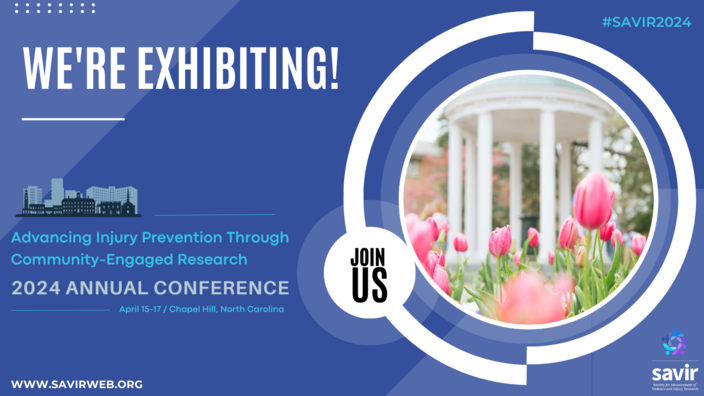


Sponsorships
Sponsor Benefits
The Injury Prevention Research Center at the University of North Carolina at Chapel Hill is hosting the 2024 Society for Advancement of Violence and Injury Research (SAVIR) Annual Conference on April 15 – 17, 2024 in Chapel Hill, NC.
SAVIR is an international organization whose conference brings together experts, researchers, and practitioners working in the field of injury and violence prevention. This provides a unique opportunity to market your organization and the work it is doing to a broad cross-section of specialists. There are many ways in which you can support the conference and the field of injury and violence prevention.
Our sponsorship packages are designed to provide your organization with substantial visibility and recognition before, during and after the conference, ensuring maximum exposure to all of our audiences.
We invite you to become a valued sponsor!
Click here to complete your Sponsorship/Exhibitor From Today!
Sponsor Levels
| The Hill Club: $2,500 | |
|
|
Tar Heel Club: $5,000 | |
|
|
Sky Blue Club: $10,000 | |
|
|
Exhibitor only | |
The exhibit area will be centrally located in the meeting space. Exhibits need not be staffed, but we suggest a representative during times set aside for participants to visit with exhibitors. Cost includes one registration.
*discount available to community organizations | |
Click here to complete your Sponsorship/Exhibitor From Today!
*** SAVIR has a range of ways that your organization can become part of the annual conference. Customized opportunities include: scholarships for students, underwriting virtual content, sponsoring a keynote speaker, lunch, social event, award or giveaways of branded items. To discuss a sponsorship opportunity, please contact Christen Rexing, Executive Director, SAVIR: ChristenRexing@thesavir.org or Beth Moracco, Interim Director, UNC IPRC: moracco@unc.edu.
